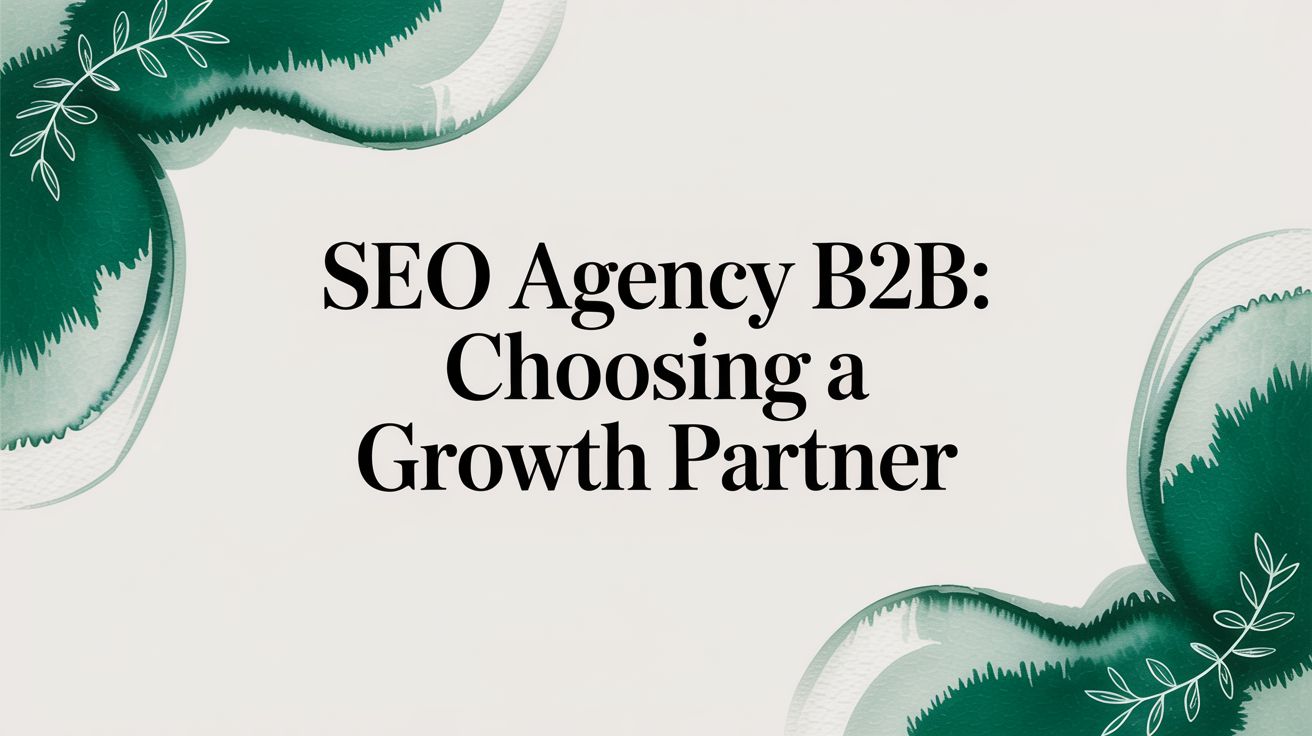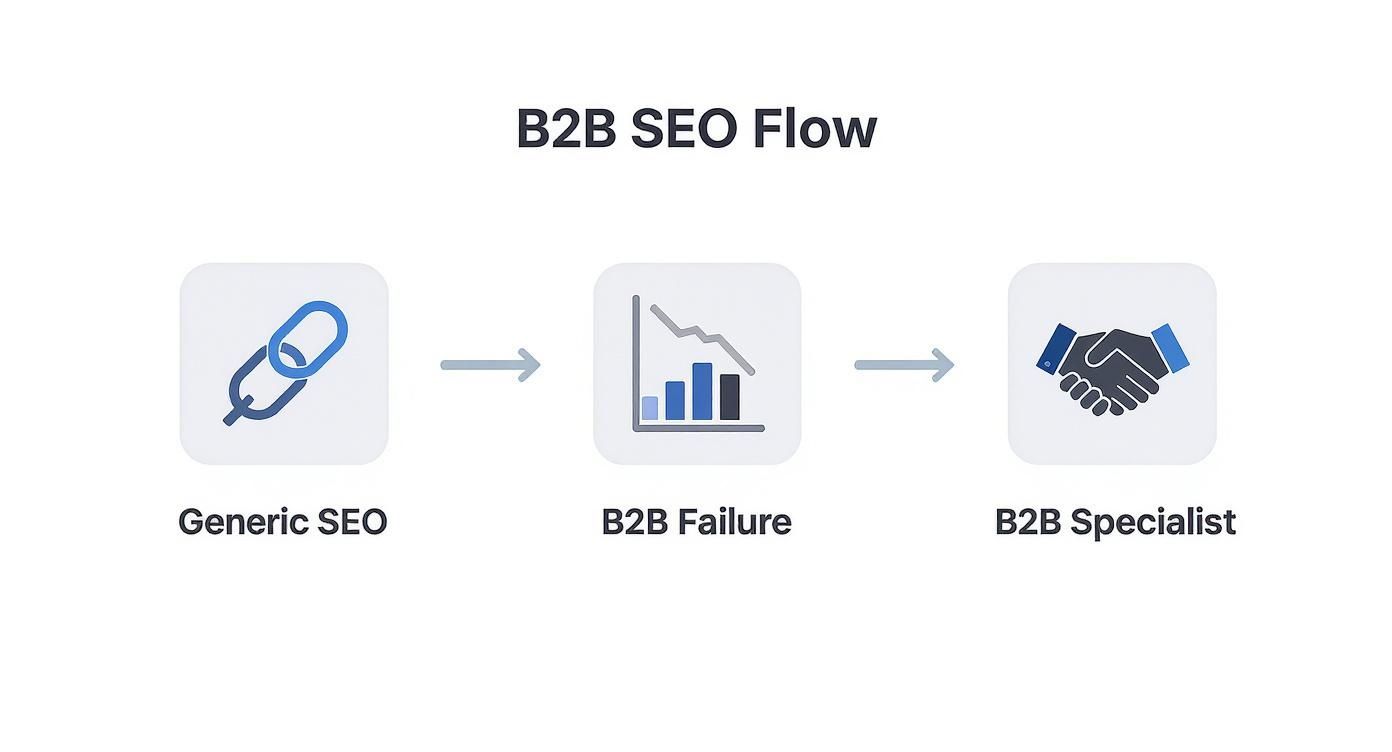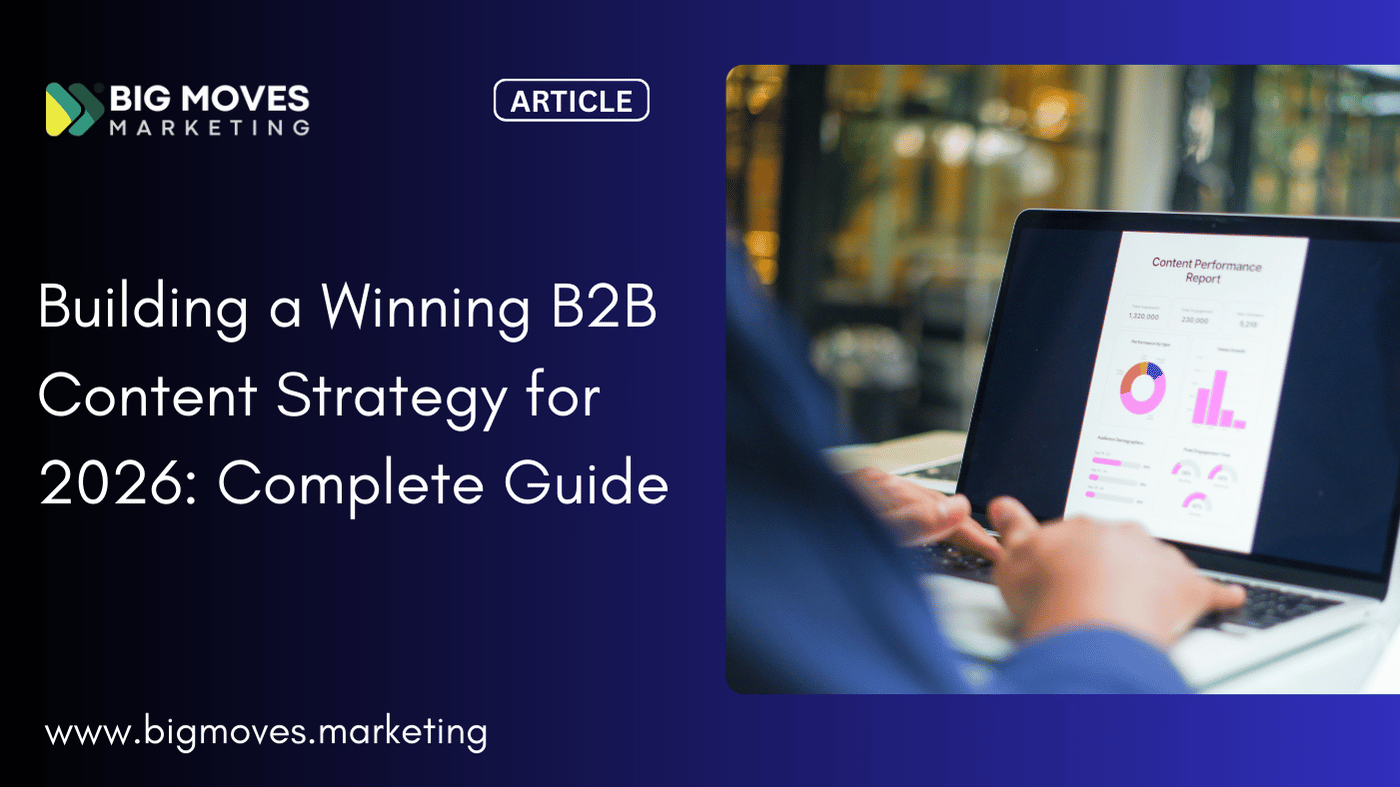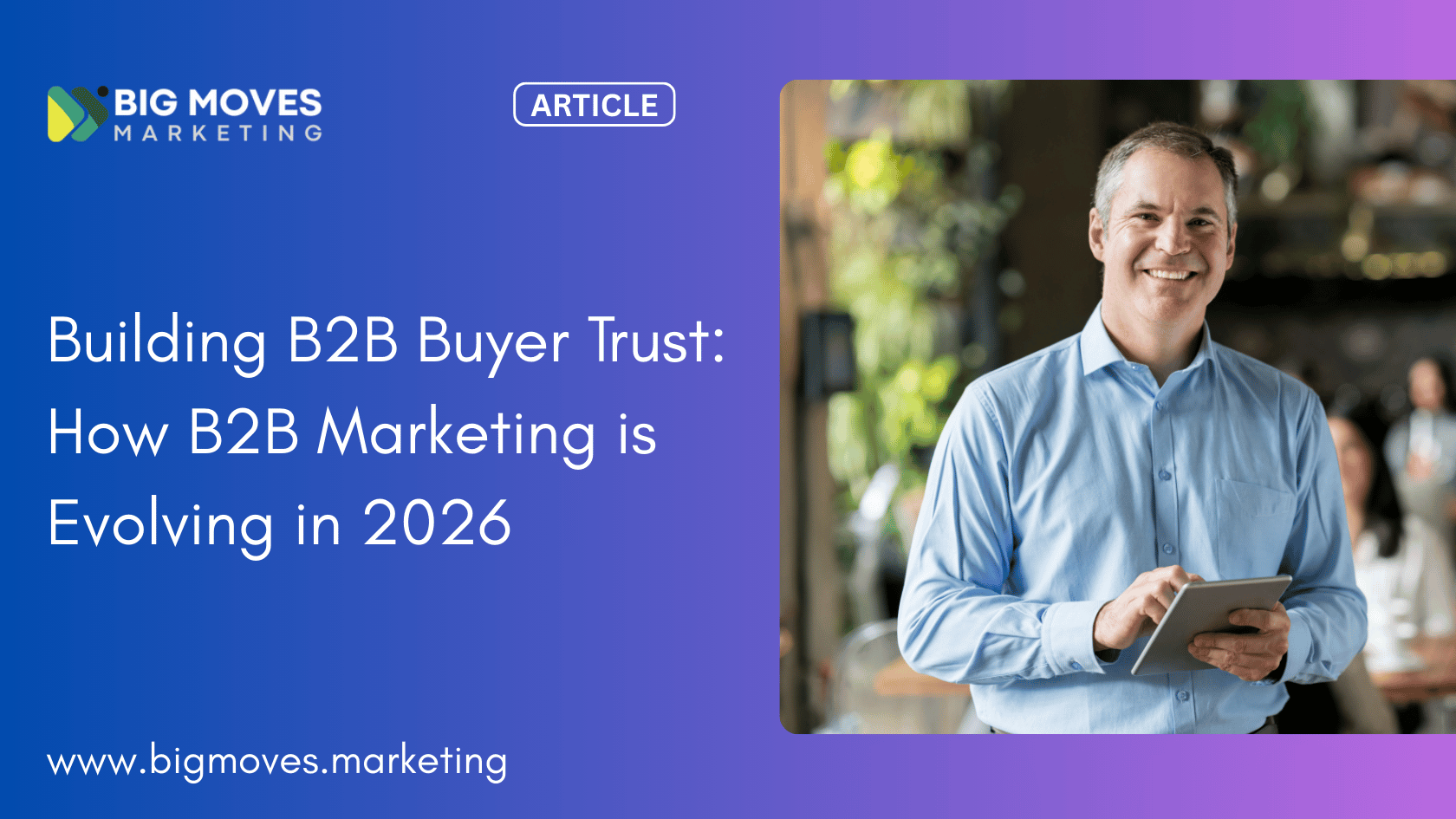SEO Agency B2B: Choosing a Growth Partner

Choosing the right SEO agency is about finding a true growth partner, not just another vendor promising more traffic. This is especially true for B2B SaaS and tech companies. Generic, one-size-fits-all SEO tactics just don’t work here—they fail to connect the dots between search visibility and what actually matters: qualified demos and pipeline growth.
Why Generic SEO Fails in B2B Tech
Finding a great SEO partner often feels impossible because most agencies approach B2B with a B2C mindset. They get excited about keyword rankings and traffic spikes, but those vanity metrics mean very little when your sales cycle is six months long and involves an entire buying committee.
The real challenge isn’t just attracting a casual visitor; it’s about engaging a sophisticated enterprise buyer who is researching a complex, expensive problem.
A generic approach completely misses this. Your customers aren't looking for quick answers; they're digging deep for technical content that solves specific pain points and builds trust over a long period.
The Misalignment of Goals and Outcomes
Here’s the core issue: a massive misalignment between typical SEO activities and your actual business objectives. A standard agency might focus on ranking for high-volume keywords, which looks great in a monthly report. But for a specialized SaaS product, that traffic is often low-quality and completely irrelevant, leading to high bounce rates and zero conversions.
You need an agency that thinks like a member of your revenue team. Their success shouldn't be measured in clicks, but in tangible business outcomes like:
- A steady increase in qualified demo requests from your ideal customer profile.
- Higher MQL-to-SQL conversion rates from organic search.
- Cementing your brand as the definitive authority within your specific niche.
A specialized B2B SEO agency gets this. They move way beyond simple keyword research to develop a deep, almost obsessive understanding of your ideal customer, your sales process, and the technical problems your product solves.
The True Cost of a Specialized Partnership
This level of strategic focus comes with a significant investment. When you're serious about B2B SEO, the financial commitment reflects the complexity and the potential return.
For instance, 55% of enterprise-level companies invest more than $20,000 per month in SEO. They aren't just putting money into a marketing channel; they see a comprehensive B2B SEO strategy as a critical driver of long-term, predictable growth.
This investment isn't just about paying for tasks; it’s about securing a strategic partner. You can read the full research on B2B SEO statistics to see just how seriously companies are taking this.
By reframing SEO as a core component of your revenue engine, not a simple marketing expense, you set the foundation for a partnership that delivers measurable, lasting business results.
Defining What Success Looks like for You
Before you even think about contacting a single B2B SEO agency, the most important work starts inside your own organization. The entire process has to begin with a crystal-clear vision of what success actually means for your business.
Just aiming for "more traffic" is a recipe for wasted money and months of frustrating reports. You'll get the traffic, sure, but it won't translate into anything meaningful.
What Really Moves the Needle?
In the B2B tech world, real success is defined by business outcomes, not flashy vanity metrics. Are you trying to get more qualified demo requests from enterprise clients? Is the main goal to shorten your sales cycle by educating prospects earlier in their journey?
Or maybe you want to become the undisputed thought leader in a very specific niche, making your brand the first and only name people think of.
These are the kinds of goals that actually matter. They're the ones that lead to real revenue growth and a stronger market position.
Get Your Internal Teams on the Same Page
Figuring this out isn't just a marketing exercise. You absolutely need buy-in from your sales and product teams. When your entire revenue team is aligned on the objectives, your search for an agency stops being a simple vendor hunt and becomes a strategic partner selection.
This internal alignment is your superpower. It lets you evaluate potential agencies based on their ability to deliver on your specific, high-stakes business needs. It shifts the conversation from, "How many backlinks can you build?" to, "How will your strategy help us close more deals?"
The infographic below really drives this point home, showing the difference between a generic approach and a specialized, outcome-focused B2B SEO partnership.

As you can see, a generic strategy almost always falls short. It’s the specialist approach, tied directly to business goals, that creates a partnership built to last.
Connecting Business Goals to Measurable SEO Metrics
Once you’ve nailed down your high-level business objectives, the next step is to translate them into tangible Key Performance Indicators (KPIs). This is where your vision gets a measurable roadmap, ensuring you know exactly what to track to see if you're making progress.
This table breaks down how common B2B tech goals connect to specific SEO metrics you can actually measure.
Tracking these connections ensures both your team and your future agency are aiming at the same target and using the same scorecard to keep track of wins.
This is non-negotiable. Defining these connections upfront prevents misunderstandings down the road and keeps everyone laser-focused on what truly matters: driving real revenue impact for the business.
This whole process sets the stage for a productive, goal-oriented relationship with your agency. For a deeper dive, check out our guide on how to measure marketing effectiveness and build a framework that works for you.
With clear goals and metrics in hand, you're finally ready to start asking the right questions.
Questions That Reveal True B2B Expertise
Your first couple of conversations with a potential agency are where you separate the real partners from the polished salespeople. Anyone can talk a good game about keywords and traffic. You need to dig deeper to see if they have genuine strategic depth and actually understand the B2B tech world.
Moving beyond surface-level questions is how you find a team that truly gets it.

This isn't about grilling them on tactics; it's about probing their strategic thinking. These conversations will reveal how they connect SEO activities to the things that actually matter to you—pipeline growth and qualified leads. That’s the whole point, right?
Probing Their Strategic Acumen
A great B2B agency thinks way beyond the search engine results page. Their strategy should be deeply woven into your sales process, acknowledging the long, complicated journey your buyers are on.
Here are a few questions I've found get to the heart of their B2B strategic skills:
- "How do you create content that speaks to both a technical end-user and the economic buyer who signs the check?" This question immediately tests if they understand the B2B buying committee. It shows if they can tailor a message for different personas within the same target account.
- "Walk me through a time you adapted a client's strategy after a major algorithm update. What was the impact?" Their answer tells you everything. Are they proactive and data-driven, or are they reactive and just scrambling to keep up? It reveals their ability to navigate change without derailing your results.
- "What's your process for turning high-level, informational traffic into bottom-of-funnel conversions like demo requests?" This is a big one. It uncovers their full-funnel strategy and shows if they know how to build pathways that guide prospects from "just browsing" to "ready to buy."
A truly expert B2B SEO agency won't just talk about ranking for keywords. They’ll talk about owning entire topics, building authority, and creating content that shortens your sales cycle by educating prospects before they ever speak to a sales rep.
Understanding Their Operational Process
A brilliant strategy is useless without solid execution. You need to get a feel for how they work day-to-day and what the partnership will actually be like. These questions are all about communication, transparency, and the team you’ll be working with.
- Reporting and Communication: Ask them, "What does your reporting cadence look like, and which metrics do you prioritize for B2B tech clients?" Their answer should be laser-focused on business impact—leads, pipeline, opportunities—not vanity metrics like impressions and clicks. Don't be afraid to ask for a sample report.
- Team Structure: A crucial question is, "Who will be our day-to-day contact, and what is their direct experience with B2B SaaS?" You need to know if you'll be working with the senior strategist who sold you the dream or if you're getting handed off to a junior account manager.
- Technical SEO Approach: Try this one: "How do you approach technical SEO for a complex SaaS product with multiple subdomains or a complicated site structure?" This reveals their technical depth and whether they can handle the unique challenges that come with tech websites.
Finding the right fit is about more than just a checklist of services. It’s about finding a shared philosophy on how to drive sustainable growth. By asking these deeper, more thoughtful questions, you can identify a genuine partner who is actually equipped to help you hit your ambitious business goals.
For more on this, you can find additional insights on what to look for when selecting a top B2B agency in our detailed guide.
How to Vet Case Studies and Client References
A polished presentation and a confident pitch can make any SEO agency look like the perfect partner. But the real proof isn’t in their sales deck; it's in their track record. This is where you separate the storytellers from the true growth drivers.
Vetting their case studies and actually speaking with client references is non-negotiable. Don't just glance at impressive-looking graphs showing hockey-stick traffic increases. You need to dig deeper for the metrics that actually impact a B2B tech company's bottom line.
Reading Between the Lines of a Case Study
A great B2B case study tells a story of transformation, not just a list of tactics. It should prove they understood the client’s complex product, their niche market, and how to connect with their ideal buyers. As you review their work, the one question to keep asking is: do these results reflect genuine business growth?
Here’s what to look for beyond vanity metrics:
- Pipeline Influence: Did their SEO efforts lead to a noticeable jump in marketing-qualified leads (MQLs) or sales-qualified leads (SQLs)? Look for hard data on demo requests or trial sign-ups attributed directly to organic search.
- Lead Quality Improvements: It's not just about more leads; it's about better leads. Did the quality of incoming prospects get better? A great B2B agency doesn't just bring more traffic—they bring the right traffic that converts into valuable customers.
- Strategic Keyword Wins: Are they ranking for high-intent, bottom-of-funnel keywords? These are the terms that signal a buyer is ready to make a decision, not just broad, top-of-funnel informational queries.
This focus on revenue is critical because for B2B companies, organic search isn't just another channel—it's a powerhouse. In fact, organic search is responsible for generating 44.6% of all revenue in B2B, making it the single largest channel. You can discover more B2B SEO statistics to see just how big the opportunity is.
And if you want to get better at spotting a well-crafted story, check out our guide on how to influence B2B buyers with impactful case studies.
Conducting Effective Reference Calls
Once you’ve analyzed their case studies, it’s time to talk to the people behind the logos. A reference call is your chance to get unvarnished, honest feedback on what it’s really like to work with the agency day-to-day.
Don't just ask if they were happy with the results. Ask about the partnership itself—the communication, the strategic input, and the moments when things didn't go as planned. This is where you uncover the truth.
Come prepared with specific questions that go beyond a simple "yes" or "no." Your goal here isn't just to confirm the case study; it's to understand the dynamic of the partnership.
Try asking questions like these:
- How proactive was the agency in bringing new ideas and strategic recommendations to the table, or did you have to drive the strategy?
- Can you describe their communication style and reporting process? Were you consistently clear on progress and what was coming next?
- When a particular strategy wasn't delivering, how did they handle it? Did they own it and pivot effectively?
The answers to these questions will give you a complete picture of their capabilities, their responsiveness, and what you can truly expect from the partnership. This due diligence is the final, critical step in choosing an agency that won't just deliver reports, but will drive real, sustainable growth for your business.
Building a Strong Partnership From Day One
You’ve signed the contract. Awesome. But don’t celebrate just yet—this isn’t the finish line; it’s the starting horn.
The real work starts now. How you navigate these first few weeks will set the entire tone for your partnership. A smooth, transparent onboarding process is what turns a simple vendor transaction into a true strategic alliance, where both of you are laser-focused on growth.

This initial phase is all about arming your new agency with the context, data, and access they need to hit the ground running. Don’t make them guess. The more you can share about your product, your ideal customers, and how your internal teams operate, the faster they can start delivering real value.
Setting the Stage for Success
Your very first priority should be a kickoff meeting that’s much more than a simple meet-and-greet. Think of this as a deep-dive session, a massive transfer of institutional knowledge. The goal here is to get way beyond the high-level points in the proposal and dive headfirst into the nitty-gritty of how you’ll actually work together.
A successful kickoff needs to accomplish a few key things:
- Nail Down Communication Channels: Decide exactly where you’ll communicate day-to-day. Will it be a shared Slack channel? Weekly sync calls? A project management tool like Asana? Figure this out now to prevent crossed wires and ensure everyone knows where to find what they need.
- Introduce Key Stakeholders: Get the right people from both sides in the same (virtual) room. This should include your marketing lead, someone from sales who can speak to lead quality, and maybe even a person from the product team. For B2B SEO, this kind of cross-functional alignment is absolutely vital.
- Re-Align on Goals and KPIs: Everyone needs to be crystal clear on the definition of success. Reiterate the business objectives and the specific metrics you agreed upon. This ensures you’re all starting from the same page and rowing in the same direction.
By laying this groundwork, you create a clear operational framework from day one. It’s all about setting expectations and establishing a collaborative rhythm early on.
Your agency is an extension of your marketing team, not just an external supplier. Treat them that way. Provide them with the same level of context and access you'd give a new senior-level hire, because their success is your success.
Granting Access and Sharing Resources
A B2B agency can't do its job in a vacuum. To build a strategy that actually works, they need direct access to your core marketing and analytics platforms. I’ve seen projects stall for weeks simply because of delays in providing credentials, so get everything ready to go immediately after that kickoff meeting.
Be prepared to grant access to:
- Google Analytics & Search Console: This is completely non-negotiable. It's the source of truth for understanding your current performance, spotting opportunities, and tracking progress.
- Your Content Management System (CMS): Whether you're on WordPress, Webflow, or a custom-built system, your agency will need editor-level access to publish new content and make technical optimizations.
- Sales Enablement Materials: This is a goldmine that many companies forget to share. Hand over your pitch decks, customer case studies, and internal documents about your buyers. These materials are packed with invaluable information about your messaging, value proposition, and how you position yourself.
Providing this level of access shows trust and empowers your agency to work efficiently. It’s a powerful signal that you truly see them as a partner in your growth, ready to roll up their sleeves and help you drive meaningful results.
Still Have Questions? Let's Tackle Them Head-On
You’ve done the research, you’ve narrowed down your list, and you're close to deciding on a new SEO partner. It’s completely normal to have a few last-minute questions bubbling up as you get to the final stages.
Honestly, this is the most critical part of the process. Getting clear, straightforward answers now is what separates a confident, successful partnership from a hesitant one that’s doomed from the start.
Let's walk through the three biggest questions that come up when B2B tech leaders are in your exact position.
So, What's a Realistic B2B SEO Budget, Really?
Trying to nail down a budget for B2B SEO can feel a bit like guesswork, but there's a pretty logical way to approach it. Your budget is going to be a direct reflection of your market's difficulty, how aggressive your growth goals are, and the level of strategic firepower you need from your agency.
The market for B2B SEO services is strong, which tells you just how critical this channel has become. Agency retainers typically fall somewhere between $3,000 and $50,000 a month, with the final number depending entirely on the scope of work. As you're looking at proposals, keep in mind that B2B SEO isn't just a marketing line item; it's a direct investment into your company's revenue engine. Some companies see a 200-400% return within the first year. You can dig into some fascinating B2B SEO statistics on revenuezen.com.
Here’s how I think about it: Stop seeing SEO as a marketing expense. Start seeing it as an investment in a predictable, long-term growth channel. The right partnership doesn't just cost money—it generates high-quality, inbound leads that pay for the investment many times over.
If you want to get a better sense of what that investment gets you, check out our guide on what to look for when choosing an agency for B2B marketing.
What Should I Actually Expect in the First 90 Days?
Let's be real: the first 90 days are not about watching demo requests flood in overnight. This initial period is all about building the foundation. It’s the unglamorous but absolutely essential work that makes future growth possible.
So, while you won’t see a massive spike on day one, you should absolutely expect to see tangible, meaningful progress. Here’s what a productive first quarter with a great B2B agency looks like:
- A Deep Technical Audit: They should have already identified and started fixing any foundational website issues that are holding you back.
- A Solidified Strategy: You should have a finalized keyword research document and a content strategy that is clearly mapped to your business objectives. No ambiguity.
- Content in Motion: The first few pieces of high-quality, strategic content should be published and starting to get indexed by Google.
- Clear, No-BS Reporting: They should have set up reporting dashboards that track the KPIs that actually matter for your business—not just vanity metrics.
This phase is all about methodical setup and disciplined execution. It’s the necessary groundwork that allows you to start seeing significant results in months four, five, and beyond.
How Do I Measure Long-Term ROI Beyond Just Traffic?
Measuring the true ROI from your B2B SEO agency means looking far beyond a simple traffic graph. Honestly, traffic is a vanity metric if it doesn't lead to revenue. The real value is found in metrics that tie directly to your sales pipeline.
Your north star metric here should be pipeline influence.
This means you need to be tracking how many marketing-qualified leads (MQLs) and, more importantly, sales-qualified leads (SQLs) are coming from organic search.
But don't stop there. Go deeper. Are the leads coming from organic search closing at a higher rate than leads from other channels? Do they have a higher average contract value (ACV)? These are the data points that tell the real story. This is how you prove that SEO isn't just a marketing activity, but a core driver of sustainable, profitable growth for your business.
At Big Moves Marketing, we specialize in creating the positioning, sales tools, and launch strategies that help B2B SaaS and AI startups drive adoption and revenue. If you're ready to build a marketing foundation that wins deals, let's talk.
%20png%20copy.png)






%20-%20white.svg)
